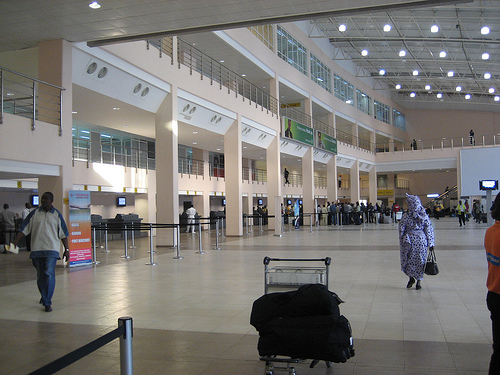There are no products in your shopping cart.
| 0 Items | £0.00 |


NIGERIA been removed from the global aviation watchlist that blacklists nations aircraft manufacturers have been asked to be wary of supplying dry lease aeroplanes to with the country's rating now rising to a whopping 75%.
Over recent years, Nigeria airlines have struggled to keep with their payments for leased aircraft, forcing global aviation bodies to blacklist the country as a risky place to lease aeroplanes to. This prompted the government to intervene and now according to aviation minister Festus Keyamo, Nigeria has been removed from watchlist globally.
Disclosing this during the commissioning of Juhi-2 aviation fuel depot yesterday at the Murtala Mohammed International Airport, Lagos, Mr Keyamo hinted that with this new status, airlines can now access dry lease aircraft. Last month, after the signing of the Cape Town Convention Practice Direction by the federal government, Nigeria's image rise to 70.5% from 49% in the global aviation sector.
Mr Keyamo assured that very soon, there would be more aircraft in Nigeria and Juhi-2 aviation fuel may need to increase its capacity to cater for the influx of aircraft into Nigeria. Patience Dappa, the Juhi-2 chairperson, said the commissioning of the depot is not just the conclusion of an infrastructural project but testament to the company’s shared belief in excellence and innovation in aviation fuel management.
Ms Dappa added: “As the largest airside jet fuel depot in Nigeria, this facility spans 46,000 square meters and boasts an impressive storage capacity of 15 million litres of Jet A1 fuel. However, Juhi-2 is not just about size, as it represents operational excellence, safety and reliability.
"This facility is equipped with state-of-the-art filtration systems, a jet fuel discharge system capable of loading four bowsers simultaneously, a modern laboratory and cutting-edge fire prevention measures. It is a strategic asset, designed to provide a steady, reliable supply of jet fuel to Murtala Mohammed International Airport and nearby airbases.”
She stressed that in building Juhi-2, they are not only enhancing infrastructure but laying the foundation for Nigeria’s continued growth in aviation. Ms Dappa pointed out that the facility will serve airlines, cargo carriers, private jet operators and other aviation stakeholders, ensuring world-class fuel service, minimising downtime and maximizing operational efficiency.
Olubunmi Kuku, the managing director of the Federal Airports Authority of Nigeria, said the depot will play a crucial role in supporting operations, improving service delivery and bolstering national economic growth.